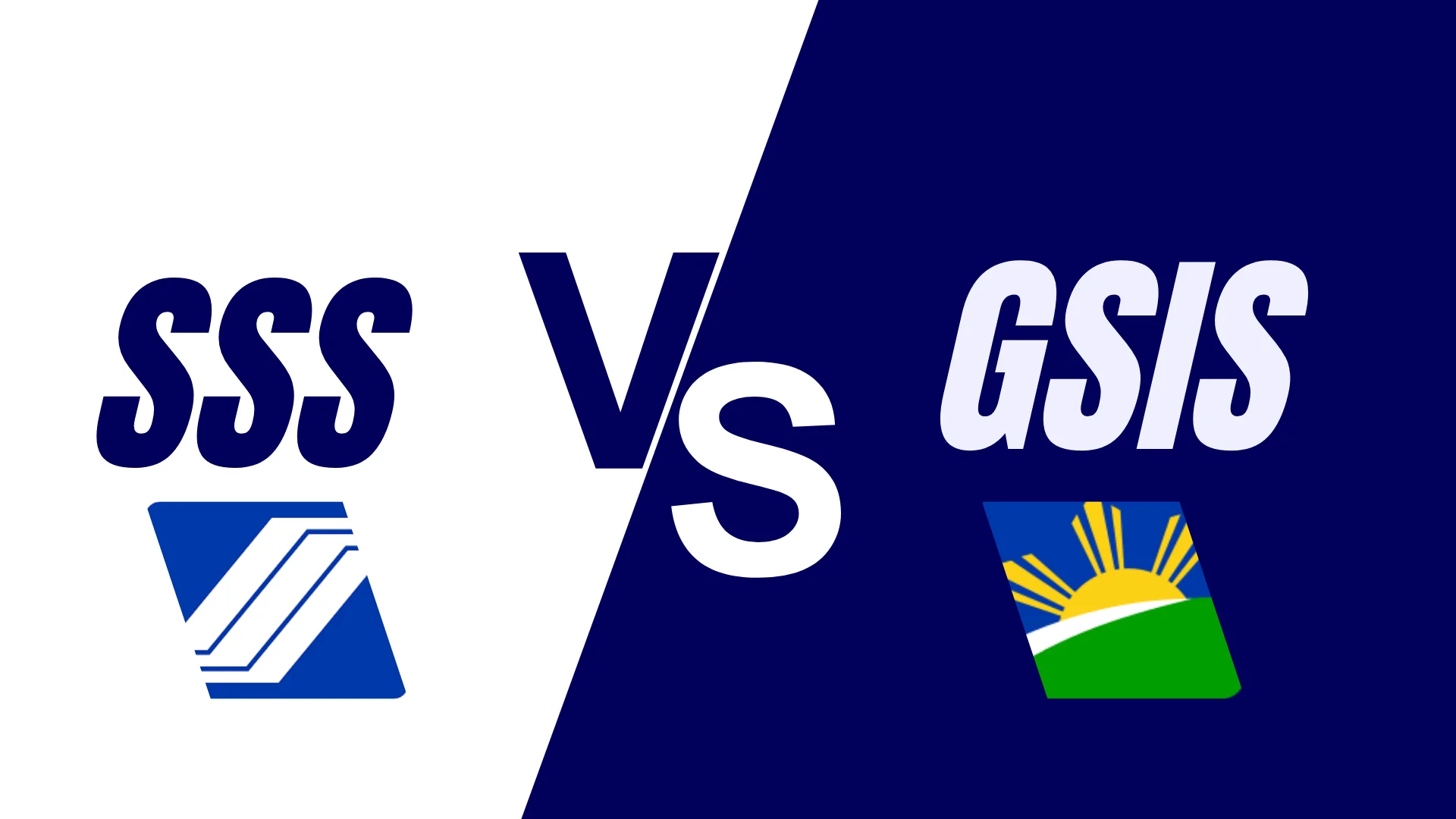
The social security and pension systems in the Philippines play a crucial role in providing financial security to Filipinos. The two main departments that are committed to the social welfare and future security of the members are the Government Service Insurance System (GSIS) and the Social Security System (SSS).
In today’s blog, we will compare GSIS Vs SSS to highlight their key differences, features, benefits, etc. to understand how these programs are helping Filipinos to make their future secure.
Government Service Insurance System Vs Social Security System
The private sector employees and employers come under the Social Security System (SSS), whereas the national government employees come under the Government Service Insurance System (GSIS).
Both systems provide several benefits to the members and the dependents but their definitions of employee, employer, dependent, and beneficiary are a lot different from each other.
For Employers
In SSS, any person regardless of his profession, trade, business, domestic or foreign status is regarded as an employer except the government officials and government institutions.
If you are using the services of any other person, you will be his/her employer. Whereas, GSIS employers include the national government, government agencies, constitutional commissions, or any government-owned institutions.
For Employees
Anyone who is serving a person, probably his employer with mental or physical efforts and is receiving compensation in return is an employee of SSS. In contrast, for GSIS an employee is someone who is elected or appointed for a specific post and receives compensation for the services they offer.
For GSIS Vs SSS Dependents
Both SSS and GSIS benefit Filipinos but their membership and eligibility criteria are different from each other. SSS membership is for private employees and self-employed individuals whereas, GSIS membership is for government employees only.
For SSS, a dependent can be your legal spouse, a legitimate, legally adopted child, or an illegitimate unmarried child who is unemployed and is under 21 years of age. Moreover, a child who is not self-capable physically or mentally can be dependent on an SSS member. Also, your parents will receive regular support from you will be your dependent.
GSIS only considers your legitimate spouse, legitimate or legally adopted child, or illegitimate child who is a minor, unemployed, unmarried, or incapable of self-support as a dependent of a GSIS member. Furthermore, your parents who are dependent on you for support shall be your dependent.
GSIS Vs SSS Beneficiaries
A GSIS member’s primary beneficiaries are his/her legal dependent spouse until he or she remarries, and his/her dependent children. Their secondary beneficiaries are their dependent parents and legitimate descendants.
While SSS considers a dependent spouse as a primary beneficiary until he/she remarries. Furthermore, SSS member’s legitimate, legitimated, or legally adopted, and illegitimate children shall be the primary beneficiary.
The dependent illegitimate children will get 50% of the share, but in the absence of dependent legitimate children, they will get 100% of the SSS benefit. The dependent parents of the SSS member will be the secondary beneficiaries of the member.
Both GSIS and SSS are compulsory for the Philippines’s workforce offering various benefits and services to the members. However, both differ in various aspects that we have discussed in this blog. If you are a private sector employee, go with SSS and if you are a government employee, GSIS is for you.
